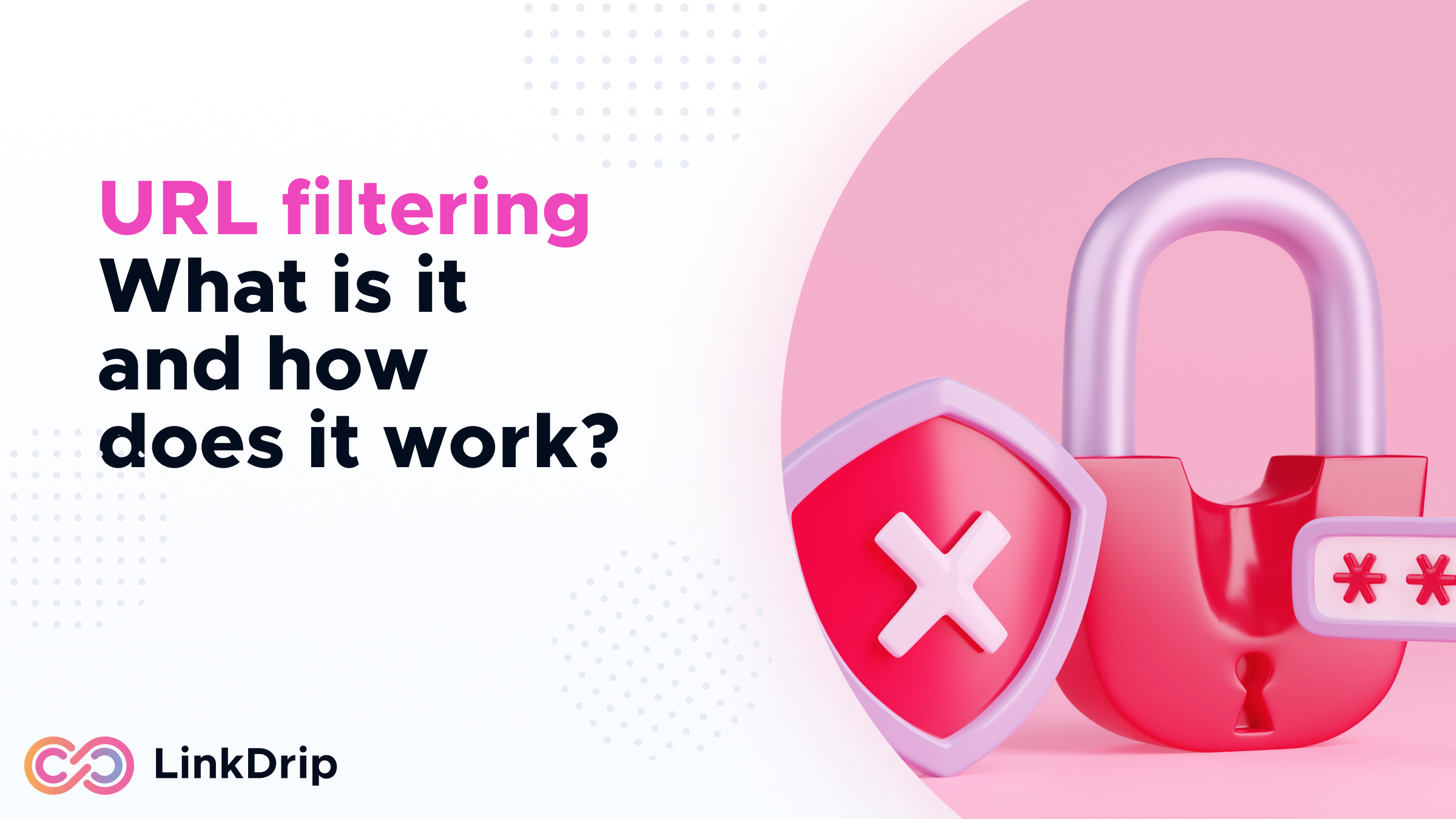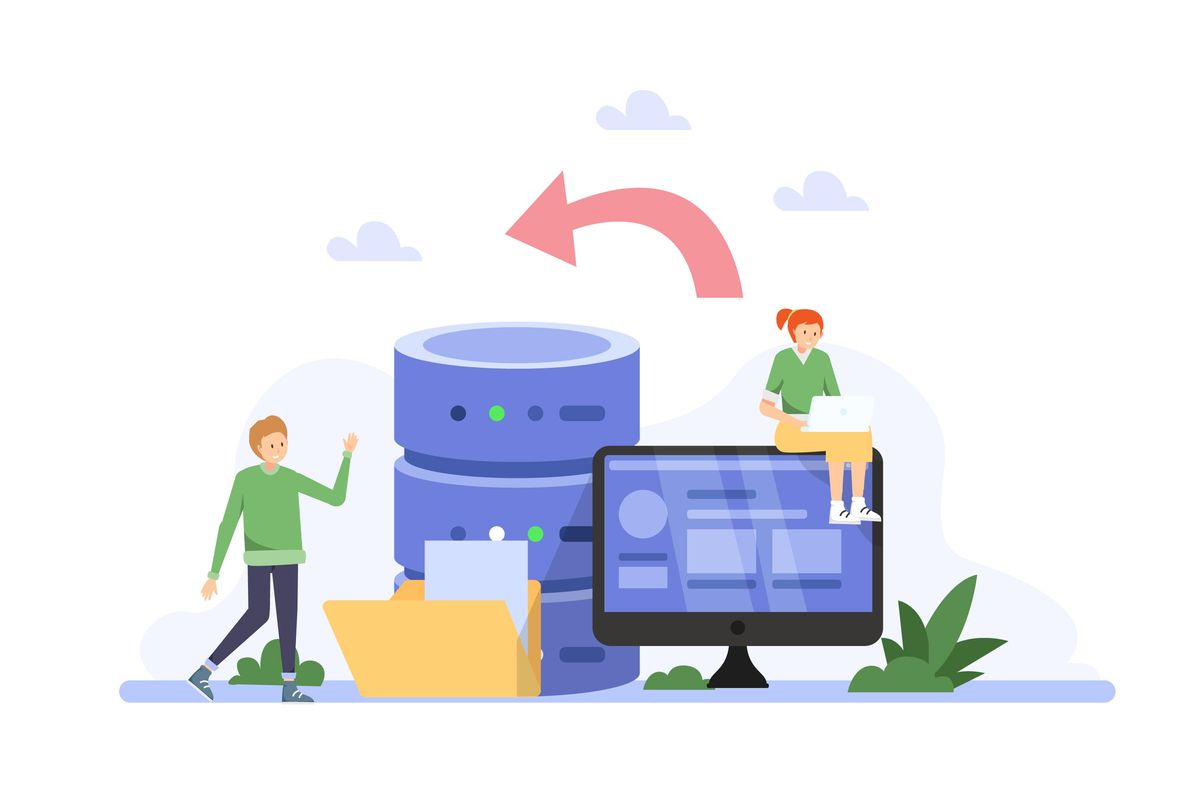
What is URL Filtering: Strengthening Cybersecurity For Businesses
By Charles Fields
Businesses of all sizes face an increasing threat of malicious cyberattacks in the quickly changing digital landscape. These dangers pose a grave risk to crucial operations and sensitive data, with potentially catastrophic results. As a result, any online business strategy must now include proactive measures to protect valuable assets.
URL filtering stands out as a powerful weapon in the arsenal of defense mechanisms, allowing organizations to thwart potential threats by blocking harmful URLs.
This blog explores about what Is URL Filtering and its advantages and clarifies how URLs work. We emphasize the importance of URL filtering in the current cybersecurity landscape by highlighting its critical function in protecting businesses from online threats.
What is URL Filtering?
Uniform Resource Locators (URLs), the addresses used to identify particular web resources on the internet, are a cybersecurity measure that enables organizations to control and regulate web access. It entails building a database of filters that classifies URLs as "allowed" or "blocked."
Businesses can proactively restrict access to URLs linked to potentially harmful or malicious content by using URL filtering. This includes websites known for spreading malware, phishing, or other online dangers. Users within the organization cannot access blocked URLs because they pose security risks.

By implementing URL filtering, organizations can improve network security and defend sensitive data from cyberattacks. Limiting access to websites that violate industry regulations also helps with compliance. URL filtering also boosts productivity by restricting access to websites unrelated to work during working hours.
Working Mechanism of URL Filtering
Database Creation:
Building a comprehensive URL database containing a wide range of websites and online resources is the first step in the process. This database acts as a data repository to make decisions about URL filtering. It is regularly updated to add new URLs and eliminate old ones.
URL Categorization:
The database's URLs are then categorized according to their content, inherent risks, and applicability to the company's security guidelines. The "allowed" list comprises URLs connected to reliable and secure websites necessary for business operations. On the other hand, the "blocked" list contains URLs linked to websites hosting malicious content, phishing attempts, or malware distribution.
User Access Control:
The URL filtering system is activated when a user tries to access a website by typing a URL or clicking a link. The requested URL is compared to the entries in the filtering database to determine whether it should be classified as "allowed" or "blocked."

Redirection and Notification:
The user is immediately forwarded to a notification page informing them that access to the website is forbidden if the URL is included in the "blocked" list. This redirection serves as a protective barrier by preventing users from unintentionally accessing harmful content and exposing the company to potential cyber threats.
Regular Updates:
The process of URL filtering is ongoing rather than a one-time event. The most recent details about brand-new URLs and potential threats are continuously added to the filtering database. Because of its dynamic nature, the organization is always protected from new cyber risks.
Customization and Policies:
URL filtering solutions frequently offer the freedom to customize filtering policies to meet the organization's unique requirements. Administrators can define specific categories and change the filtering criteria depending on their security needs. This way, they can understand how to get rid of web filter violations.
Benefits of URL Filtering
#1 Mitigating Security Risks:
URL content filtering is a vital line of defense against various online threats. Organizations can significantly reduce their susceptibility to cyberattacks by proactively blocking access to websites known for hosting malicious content, phishing attempts, and malware distribution. By protecting against unintentional visits to harmful websites, this safeguard guards against potential security lapses and data loss.

#2 Regulatory Compliance:
Different industries are subject to strict data protection and compliance regulations in today's data-driven world. Organizations can adhere to these industry-specific standards with the help of URL filtering. Businesses can avoid expensive fines and preserve their reputation for responsible data management by restricting access to websites that could result in non-compliance or data breaches. It is highly crucial to learn about what is URL Filtering and how to make it work effectively.
#3 Productivity Enhancement:
The use of URL filtering helps to increase workforce productivity. Businesses can reduce distractions and foster a more focused work environment by restricting access to social media and websites unrelated to their core business during working hours. This increases overall productivity and ensures that resources are used effectively by the company.
#4 Network Resource Preservation:
For any organization, bandwidth and network resources are limited but priceless. By preventing access to websites that use a lot of bandwidth or are not necessary, URL filtering aids in preserving these resources. This keeps workers from doing things that might clog up the network and degrade its performance, resulting in a smoother network.

#5 Protection from Phishing Attempts:
One of the most frequent online threats is phishing. Employees are less likely to become victims of email scams, credential theft, and identity fraud when URL filtering stops users from unintentionally accessing phishing websites. This proactive approach improves email security and safeguards private data.
#6 Safe Browsing for Users:
Organizations can give their employees a safer browsing experience by implementing URL filtering. Users become more trustworthy and confident because the company values their online security and offers a secure platform for internet access. Once you know what URL filtering means, you can incorporate it.
#7 Flexibility and Customization:
To meet the specific requirements of various organizations, URL filtering solutions frequently provide flexibility and customization options. According to their industry, business needs, and risk tolerance, administrators can customize filtering policies to ensure the best possible balance between security and productivity.
#8 Proactive Threat Intelligence:
Many URL filtering services use threat intelligence and machine learning algorithms to continuously update the filtering database with the most recent information on new threats. This allows businesses to stay ahead of changing cyber risks and modify their security precautions as necessary.

URL Filtering and DNS Filtering
Web filtering strategies must include URL and DNS filtering because they have distinct cybersecurity benefits. While DNS filtering acts at the domain level, blocking entire domains based on associated IP addresses, URL filtering operates at the granular level, blocking specific web addresses. Combining the two filtering techniques fortifies the defense against various online threats.
While DNS filtering effectively blocks entire domains that pose risks, URL filtering gives users precise control over specific URLs known to contain malicious content. By enhancing network security, preventing phishing attempts, and ensuring regulatory compliance, this combined strategy fortifies organizations against evolving cyber risks.
Summing up,
URL filtering is an essential cybersecurity measure for companies dealing with constantly evolving cyber threats. It actively safeguards sensitive data and ensures regulatory compliance by blocking harmful URLs. URL filtering also increases productivity and protects network resources. Organizations can fortify their digital infrastructure by understanding what URL filtering is and creating a formidable defense against online threats. URL filtering protects businesses from sneaky cyberattacks and is crucial to a sound cybersecurity strategy.